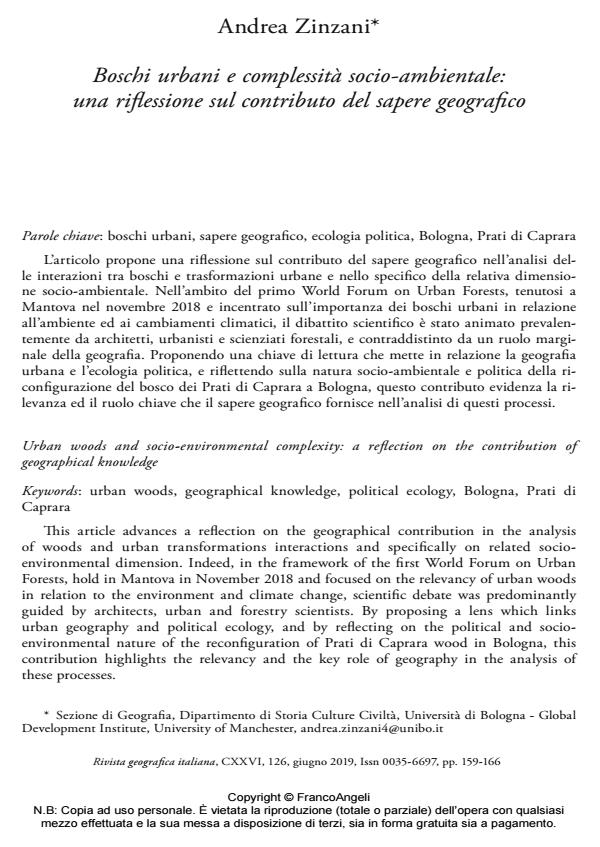Urban woods and socio-environmental complexity: a reflection on the contribution of geographical knowledge Caprara
Journal title RIVISTA GEOGRAFICA ITALIANA
Author/s Andrea Zinzani
Publishing Year 2019 Issue 2019/2
Language Italian Pages 8 P. 159-166 File size 118 KB
DOI 10.3280/RGI2019-002007
DOI is like a bar code for intellectual property: to have more infomation
click here
Below, you can see the article first page
If you want to buy this article in PDF format, you can do it, following the instructions to buy download credits

FrancoAngeli is member of Publishers International Linking Association, Inc (PILA), a not-for-profit association which run the CrossRef service enabling links to and from online scholarly content.
This article advances a reflection on the geographical contribution in the analysis of woods and urban transformations interactions and specifically on related socioenvironmental dimension. Indeed, in the framework of the first World Forum on Urban Forests, hold in Mantova in November 2018 and focused on the relevancy of urban woods in relation to the environment and climate change, scientific debate was predominantly guided by architects, urban and forestry scientists. By proposing a lens which links urban geography and political ecology, and by reflecting on the political and socioenvironmental nature of the reconfiguration of Prati di Caprara wood in Bologna, this contribution highlights the relevancy and the key role of geography in the analysis of these processes.
Keywords: Urban woods, geographical knowledge, political ecology, Bologna, Prati di
Andrea Zinzani, Boschi urbani e complessità socio-ambientale: una riflessione sul contributo del sapere geografico in "RIVISTA GEOGRAFICA ITALIANA" 2/2019, pp 159-166, DOI: 10.3280/RGI2019-002007